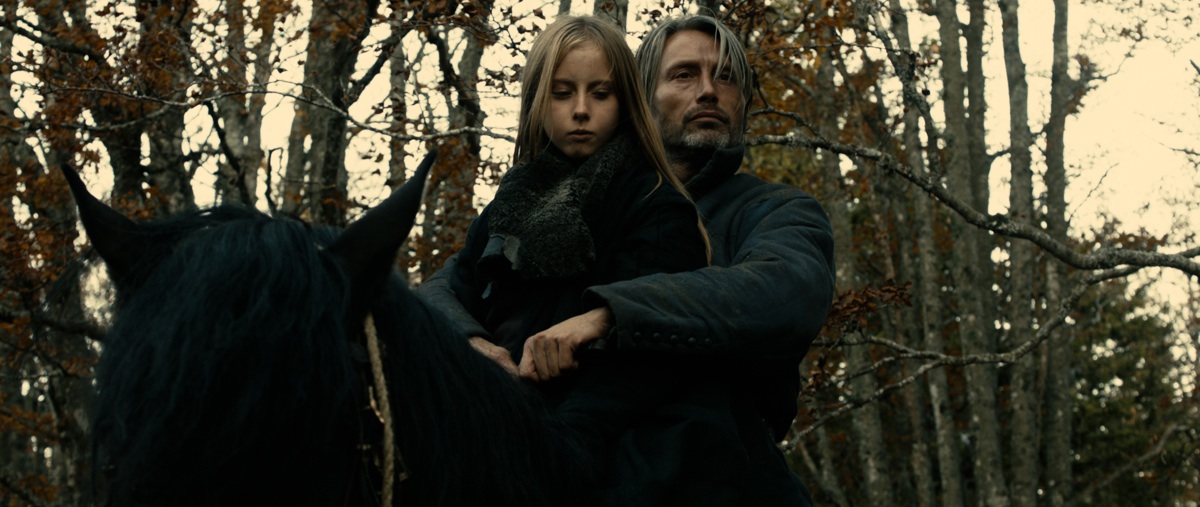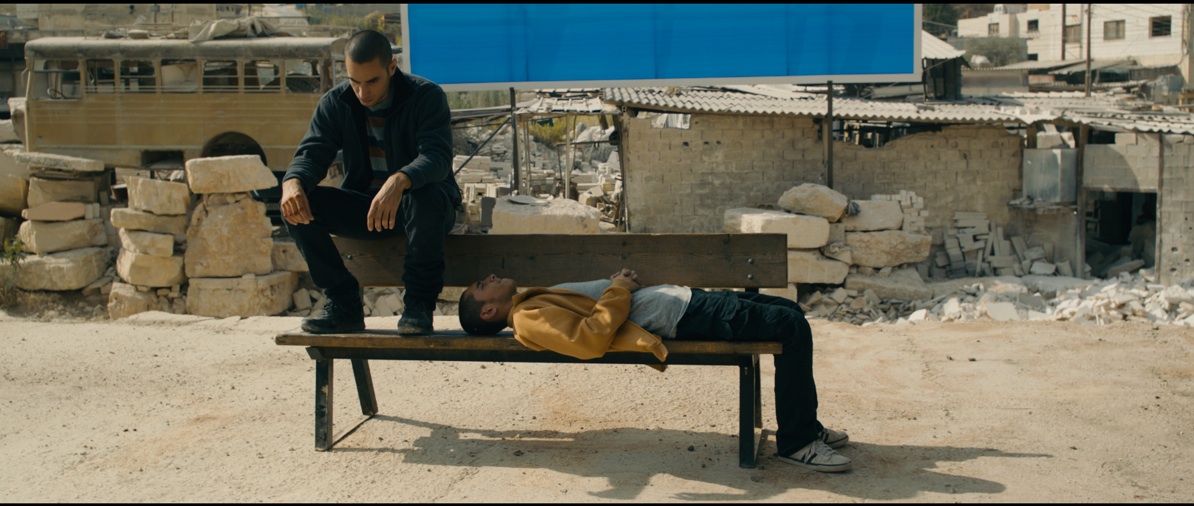It’s a hot, sunny Thursday, and the Cannes festival ends on Sunday. Speculation about the Palme d’Or should be at a fever pitch by now, but it’s not. Shrewd prognosticators like longtime Cannes veteran Derek Malcolm of the London Evening Standard, who has a talent for predicting the prizes annually with pinpoint accuracy, shrugs off the question. The taste of the head of the jury is always considered the key, and Spielberg is a wild card.
As I tried to wrangle an elusive Wifi signal for my laptop in the usually reliable sweet spot in the dim hallway of my hotel late last night, a voice called out to me from the doorway of a nearby room, declaring unequivocally that the winner of the Palme will be the Paolo Sorrentino film “The Great Beauty,” “You must be Italian, sir,” I said, not recognizing his accent. “No, Dutch,” he replied. In Cannes, everybody’s an expert.
I’m guessing that Alexander Payne’s “Nebraska,” which premiered in competition early this morning, will find favor among European viewers. It’s a film steeped in the heartland Americana that Europeans so often find endlessly mysterious and alluring. The vast space and the raw feeling of prairie culture pass for exotic. For American viewers, this is a trip into what one friend back home refers to as “the land of the 300-pounders.” It’s Walmart-people territory, but in Payne’s hands, a gentle and nostalgic view.
Following his Hawaii-set Oscar-winning “The Descendants,” Omaha-born-and-bred Payne returns to the Nebraska roots so evident in his 2002 film “About Schmidt.” “Nebraska” is a father-son bonding story that collapses the disappointments and failures of a man’s life into one weekend, and, despite everything, grants him his heart’s desire. The film represents a return to Payne’s road-movie method of exposition that characterized both “About Schmidt” and “Sideways.”

Woodrow T. Grant (Bruce Dern), an elderly man in the early stages of dementia, is found trekking down a Montana highway. It isn’t the first time, we discover, as his son David (Will Forte) claims him from the police station and takes him home to his exasperated wife Kate (June Squibb). Having misinterpreted the promotion of a Publishers Clearing House–type mass-mail sweepstakes, Woody believes that he has won one million dollars, which he insists he will collect in person in Lincoln, Nebraska.
“You know what I’d do with a million dollars? I’d put him in a home,” Kate yells. A bad father, bad husband, and borderline alcoholic, deluded Woody, with the dog-eared sweepstakes letter closely guarded in his breast pocket, nevertheless stirs something more than pity in David, whose own life isn’t going so well. The two are soon on the road to Lincoln.
Payne’s love for the landscape of the Great Plains is evident in his sweeping widescreen shots of the passing scenery. His equal love for the quirkily unique kitsch of the road and the milieu of the fading small town will become central to the stylistic architecture of the film. It is shot entirely in black-and-white, with a finely attenuated range of grays; an apt choice for a comedy/drama full of moral gray areas and misunderstandings.
An accident results in a temporary change of plans. David and Woody end up staying for the weekend with aging relatives in the hayseed town where Woody was born, and an impromptu family reunion ensues when June and David’s brother join them. Against David’s advice, Woody reveals his supposed sweepstakes win to one and all. He becomes the town celebrity as well as the target of greedy schemes.
Payne’s portrayal of the family members and friends from Woody’s past is devastatingly satirical, yet retains enough affection for the comic aspects of the story to be lacking in cruelty. However, “Nebraska” has several fundamental flaws. Chief among them is the amateur line readings by many in the cast, including Will Forte, who seems as if he were reading a teleprompter. The same goes for lesser members of the cast, some of whom appear to be non-professional actors.
The tone of “Nebraska” is uneven, with some of the characterizations ranging from slapstick to simply one-note. Payne utilizes folksy tunes with a sentimental air on the soundtrack, as if the nostalgia were not yet piled on thickly enough. Despite the flaws, the pathos of the ending works on its own terms, to deliver a father’s modest reward and a son’s validation after the two complete the journey to Lincoln.
Later, I caught up with a film market screening of the Palestinian film “Omar” by Hany Abu-Assad, which had debuted in Un Certain Regard earlier in the week. In a very different way, “Omar” also exposes life in a small town, but in this case the town is in the occupied Palestinian territories, where the presence of the formidable security wall and the occupation by the Israeli army has altered life forever for the Palestinian residents.
Twenty-something Tareq (Eyad Hourani), Amjad (Samer Bisharat), and Omar (Adam Bakri), friends from boyhood, hang out, joke, and play together. They are also members of the Palestinian underground resistance, and one night they carry out a covert operation to kill a soldier. Amjad actually pulls the trigger, but Omar is the one who is apprehended a few days later, following a chase on foot through the labyrinthine passageways of their immediate neighborhood.

Imprisoned and tortured viciously, Omar is recruited by an Israeli agent to function as a spy and double agent, with the promise that life will be easy for him ever after if he cooperates. He faces a ninety-year sentence if he doesn’t. Omar disdains the offer but is released anyway, with the caution that he has thirty days to change his mind and give up the name of the real killer.
Imprisonment has tainted Omar in the eyes of all he knows, including Tareq’s young sister Nadia, his would be-fiancée. He is already assumed to be a collaborator, and director Abu-Assad builds a plot as labyrinthine as the narrow back alleys of the town. Fear, self-interest, and misperceptions cause each and every character to have a changing face and a dubious agenda.
Tareq is a resistance leader who also has a stake in considering his sister’s best marriage prospects. Amjad is secretly in love with Nadia, who is in love with Omar but frightened by the cloud of suspicion over him. Omar has multiple reasons to betray any of them, especially when Amjad reveals that he has gotten Nadia pregnant.
Films set against the background of the ongoing Israeli-Palestinian conflict more often have plots that can be seen in simple black and white terms, with the Israelis as the villains. The occupiers are indeed the villains in “Omar,” but the story goes deeper in creating a chain of wrongs and perpetrators that grow out of twisted circumstances of the occupation and the impossible demands placed on what were once clear-cut bonds of family and friendship.
Danish star Mads Mikkelsen (“A Royal Affair,” “The Hunt”) is a magnificent actor, which is why I had hopes for tonight’s French competition film “Michael Kohlhaas” by Arnaud des Pallières, which is based on a German novella by Heinrich von Kleist. Set in the 16th century, this is the story of a man who turns to covert action and violence to right the wrongs that have been done him.

A horse breeder and trader in a wild, mountainous region in the southwest of France, Koolhaas has two of his best horses seized by a local baron, who severely mistreats the animals and almost kills their groom. Koolhaas seeks justice through the corrupt courts, but his case is rejected and he’s treated as a pariah. When his wife appeals to the princess, the region’s ruler, on the family’s behalf, she is returned from the court a bloodied corpse. Koolhaas raises his own personal army and goes on a rampage in retribution.
This is a story that sounds action-packed but it’s not. It has a slow contemplative quality in which every action is carefully considered, words are few, and little is seen of the violent deeds beyond sweat on men’s faces and trickles of blood gleaming in darkened rooms. It’s a more intellectualized style of presenting a saga, and it’s more about the psychology of Koolhaas than the bloody raids that make him an outlaw with a price on his head.
“Michael Koolhaas” is not always satisfying to watch from the point of view of drama. I found it most effective when des Pallières is working in long-shots that provide a wider look at the shape of the conflict through the movements and configuration of men and horses against the rugged foothills studded with outcroppings of rock.
The princess eventually grants Koolhaas an audience, and the scene is a more gripping one, as she arrives by surprise at his farm and confronts the naked man just emerging from his horse-trough bath, and kneels to his young motherless daughter. She promises justice, but the price of that is revealed to be his head.
Through nearly all of “Michael Koolhaas,” Mikkelson has been seen as alternately proud, passive, concerned, or worried, none of these emotions causing much of a ripple across his sharply chiseled face. In the final minutes, as he ascends a scaffold for his execution, his face is transformed by the successive emotions of a frightened and regretful man about to die. It’s a wonderful flash of what “Michael Koolhaas” might have been.












